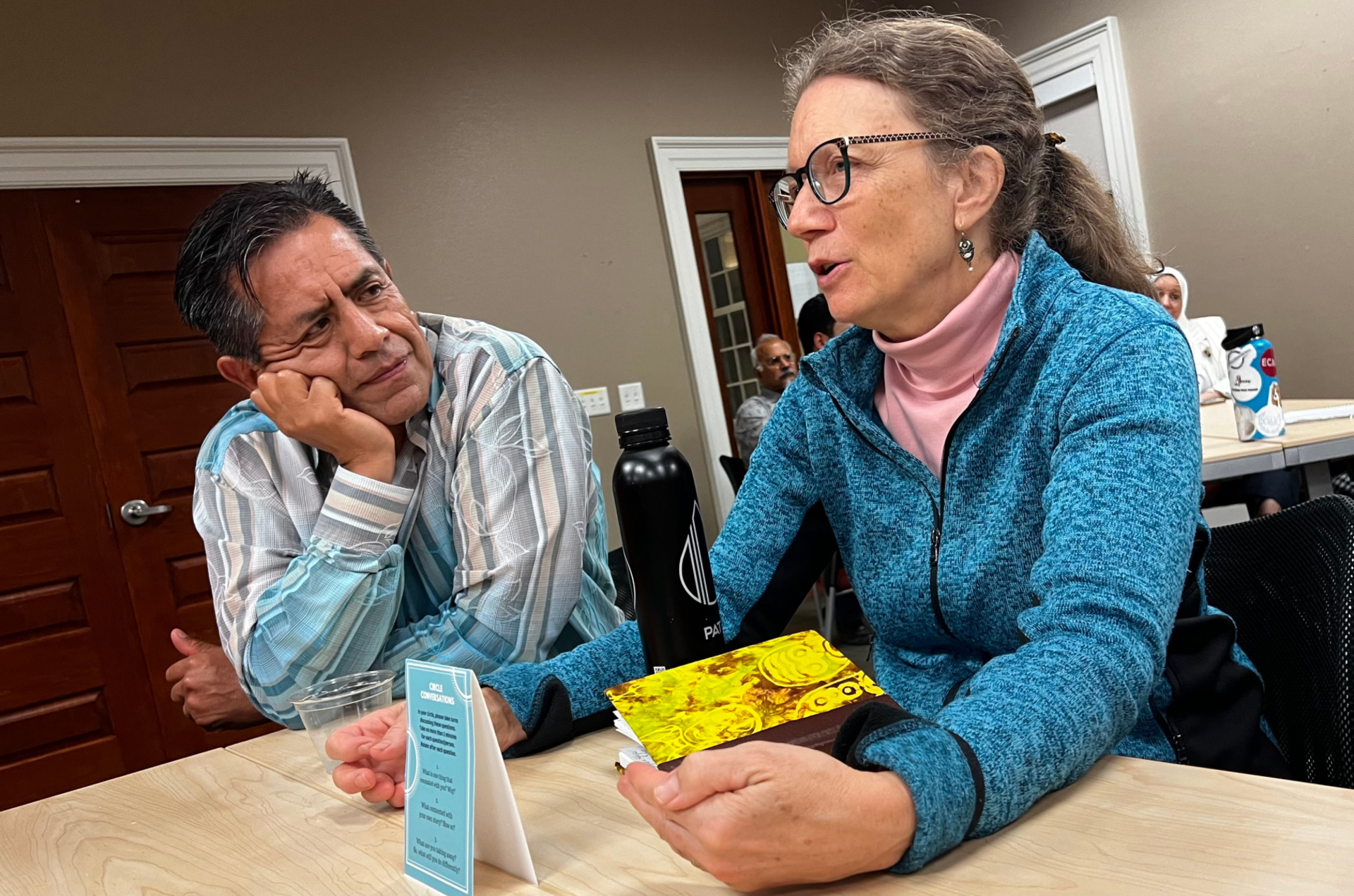
Wednesday's event is an ongoing effort by the College to bring together experts, refugees and students to discuss strategies for investing in and sustaining peace.
There were no books to check out Wednesday at Guilford College’s inaugural Human Library. Instead, a packed room in Founders Hall listened to four refugees who shared first-person stories of fleeing war, violence and persecution to make new homes in Greensboro.
Tabata Chisse’s family fled Mexico’s drug cartel violence. Blaise Pascal endured years of ethnic violence in Burundi before being displaced. Abdul Alkhasrachi’s family left Iraq when his father began receiving death threats for helping American forces. Shabnam Jan, a former judge in Afghanistan, and her family spent 20 months in refugee camps before making their way to America.
Each speaker had a different story to tell, but each story shared a common theme of resiliency.
“You call it resiliency and maybe it is,” Blaise told a roomful of students and community members. “Most refugees have no choice but to move and survive and keep moving again. Because the only other choice is to give up.”
“Americans like to say, ‘there’s no place like home,’” Blaise said. “Refugees can’t say that because we can never go back home. So we settle with ‘there’s no place like a second home.’”
Human Library: Fleeing Hope, Finding Home is a follow-up program to the Conceptualizing Peace Forum that was held in the spring. The forum and extended programs bring together experts, refugees and students to discuss strategies for investing in and sustaining peace.
Noor Ghazi, the University Sponsorship Program Director for Guilford’s Every Campus A Refuge program, says it’s important to create events like The Human Library where conversations can flourish. "We want to encourage dialogue between our guests and students and whomever attends," she says. "By hearing these stories firsthand, we hope to break down barriers and build bridges of understanding."
One of those stories was that of Abdul, a freshman majoring in Health and Human Science at the University of North Carolina at Greensboro. Abdul was too young to fully comprehend the desperation of his parents’ decision to move. His father helped U.S. forces during and after the U.S. and allied forces’ invasion of Iraq, which made him a target of increasing death threats.
When the family decided to move in 2017, Abdul was a middle school student.
“They told us we were moving to the U.S. because the economy and schools were better here, which is true, but they never told us about the danger we were in,” he says.
Abdul’s parents took low-paying jobs after settling in Greensboro, working with Guilford’s Every Campus A Refuge program, which helps acclimate immigrants and refugees in the city by helping them find work and learn a new language.
Abdul said ECAR played an outsized role in helping his family adjust to their new country. Just as important were the neighbors, teachers and students he interacted with.
“That’s one thing that I really want to let people know about,” said Abdul. “Having someone beside you giving you support is important. When I started making friends and getting that support I noticed how much my attitude, my personality changed. Being there for (refugees) is so important. In a lot of ways we’re just like you, except we’re refugees. To be called a refugee is a name we wish no one to wear because that means you don’t have a home. That’s why it’s so important just to help.”

